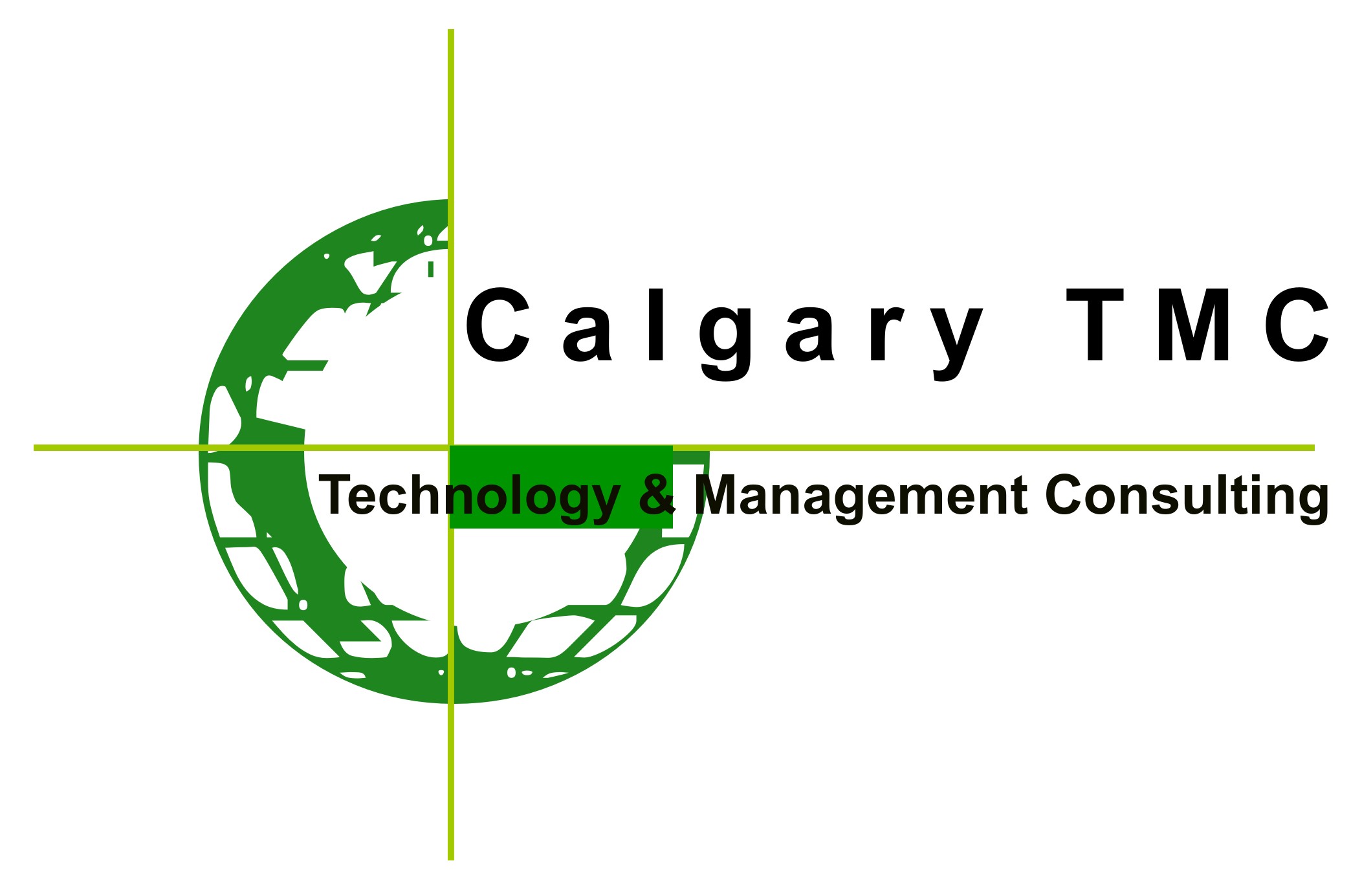
Home About CSA MSA Download Our Services Business Trip Blog Contact
Management Skills Assessment (MSA)
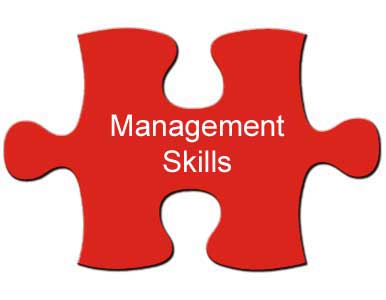
May 2016
Release 1.0
MSA
Topics:
Essential Soft Skills for Managers
|
No |
Skill |
|
1 |
Leadership |
|
2 |
Creative
Problem Solving |
|
3 |
Time Management |
|
4 |
Effective
Communication |
|
5 |
Team
Work & Team Building |
Fast
Track Soft skills
|
No |
Skill |
No |
Skill |
|
Key Skills |
|||
|
1 |
Anger Management |
7 |
Personal Productivity |
|
2 |
Assertiveness & Self-Confidence |
8 |
Safety In The Workplace |
|
3 |
Customer Service |
9 |
Stress Management |
|
4 |
Facilitation Skills |
10 |
Teamwork And Team Building |
|
5 |
Interpersonal Skills |
11 |
Time Management |
|
6 |
Managing Workplace Anxiety |
|
|
|
Data / Information Skills |
|||
|
1 |
Basic Bookkeeping |
4 |
Goal Setting and Getting Things Done |
|
2 |
Budgets And Financial Reports |
5 |
Proposal Writing |
|
3 |
Job Search Skills |
6 |
Risk Assessment and Management |
|
Leadership Skills |
|||
|
1 |
Appreciative Inquiry |
7 |
Developing a Lunch and Learn |
|
2 |
Attention Management |
8 |
Employee Motivation |
|
3 |
Business Acumen |
9 |
Leadership And Influence |
|
4 |
Business Succession Planning |
10 |
Talent Management |
|
5 |
Change Management |
11 |
Train-The-Trainer |
|
6 |
Coaching And Mentoring |
|
|
|
People Skills |
|||
|
1 |
Administrative Support |
7 |
Human Resource Management |
|
2 |
Employee Onboarding |
8 |
Manager Management |
|
3 |
Employee Recruitment |
9 |
Office Politics For Managers |
|
4 |
Executive and Personal Assistants |
10 |
Organizational Skills |
|
5 |
Generation Gaps |
11 |
Supervising Others |
|
6 |
Hiring Strategies |
12 |
Telework And Telecommuting |
|
Communication Skills |
|||
|
1 |
Body Language Basics |
7 |
Communication Strategies |
|
2 |
Business Ethics |
8 |
Conflict Resolution |
|
3 |
Business Etiquette |
9 |
Delivering Constructive Criticism |
|
4 |
Business Writing |
10 |
Meeting Management |
|
5 |
Phone Skills |
11 |
Negotiation Skills |
|
6 |
Civility In The Workplace |
12 |
Workplace Diversity |
|
Creative / Artistic Skills |
|||
|
1 |
Creative Problem Solving |
6 |
Trade Show Staff Training |
|
2 |
Critical Thinking |
7 |
Virtual Team Building And Management |
|
3 |
Emotional Intelligence |
8 |
Work-Life Balance |
|
4 |
Presentation Skills |
9 |
Workplace Harassment |
|
5 |
Public Speaking |
10 |
Workplace Violence |
MSA Details:
ü There are two separate Assessment : Essential
& Fast Track
ü Cost – total questions and time
|
Assessment |
Cost |
Total Questions |
Time (hours) |
Skills |
|
Essential |
CAN$ 75.00 |
75 |
1:15 |
5 |
|
Fast Track 1 |
CAN$ 100.00 |
150 |
2:30 |
10 |
|
Fast Track 2 |
CAN$ 100.00 |
150 |
2:30 |
10 |
|
Fast Track 3 |
CAN$ 100.00 |
150 |
2:30 |
10 |
|
Fast Track 4 |
CAN$ 100.00 |
150 |
2:30 |
10 |
|
Fast Track 5 |
CAN$ 100.00 |
150 |
2:30 |
10 |
|
Fast Track 6 |
CAN$ 120.00 |
180 |
3 |
12 |
ü The MSA Fast Track must be taken assessment
two separate time
ü You may retake them by registering again
for each assessment
ü MSA Accounts are active for once
ü Your scores are available from the
Assessment Staff maximum 10 work days for essential and 20 work days for Fast
Track after you have completed the assessment.
ü Candidate must have valid passport &
one copy of main page when entering to test site
ü Candidate must not mark in questionnaire sheet
ü Candidate must complete answer sheet with pencil
Leadership
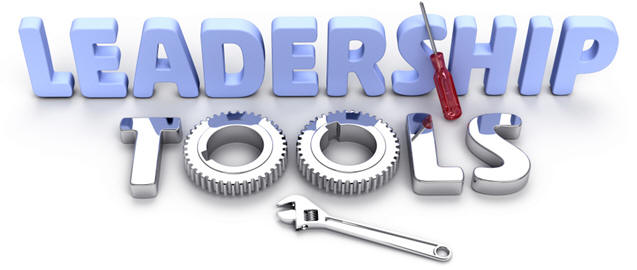
Leadership skill
is the ability to lead effectively is based on a number of key skills. These
skills are highly sought after by employers as they involve dealing with people
in such a way as to motivate, enthuse and build respect.
The candidate
should be able to:
According
to the idea of transformational
leadership , an effective leader is
a person who does the following:
ü Creates an inspiring vision of the future.
ü Motivates and inspires people to engage with that
vision.
ü Manages delivery of the vision.
ü Coaches and builds a team, so that it is more
effective at achieving the vision.
ü Leadership brings together the skills needed to
do these things. We'll look at each element in more detail.
Creative Problem
Solving
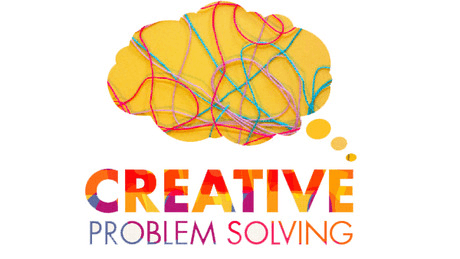
CPS skill is a proven method for approaching a
problem or a challenge in an imaginative and innovative way. It's a process
that helps you redefine the problems and opportunities you face, come up with
new, innovative responses and solutions, and then take action.
The candidate
should be able to:
ü Delegates to identify different problem solving
techniques
ü Delegates to analyze a problem so that
appropriate problem solving techniques may be applied
ü Recognize the importance of dealing with the
cause of a problem, rather than just dealing with the effect of a problem
ü Learn how to generate alternative solutions,
using creative thinking and brainstorming
ü Learn the different stages of the decision making
process and understand the importance of each stage in ensuring effective
decisions are made
ü Enable delegates to apply problem solving and
decision making models to the workplace
Time Management
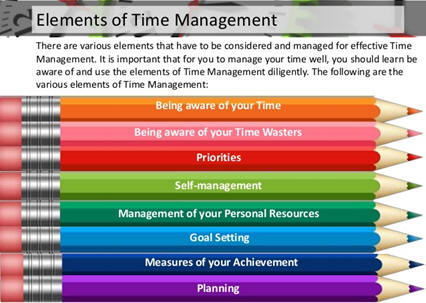
Time
management skill is the act or process of planning and exercising conscious control over the amount of time
spent on specific activities, especially to increase effectiveness, efficiency or productivity.
The candidate
should be able to:
ü Achieve better results through effective planning
and clarifying objectives
ü Spend more time working toward your high-value
goals
ü Refuse unreasonable requests
ü Understand the needs of different personality
styles and how to work with them
ü Keep things in perspective
ü Handle paperwork effectively and discard much of
what crosses your desk
ü Gain a balance between professional goals and
personal time
ü Use time management tools more effectively
ü Set goals and prioritize them to determine if
activities are goal-directed
ü Apply a critical-path network system to estimate
time and activities required for reaching objectives
ü Spend less time putting out fires each day
ü Become effective at delegating lower priority
items
ü Manage resources more efficiently
Effective
Communication
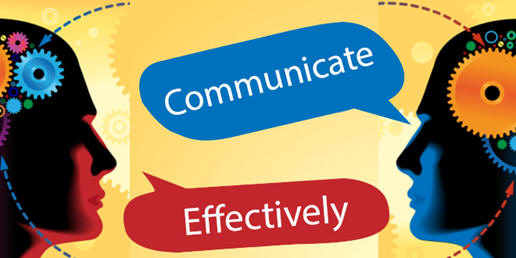
Effective
communication is a key interpersonal skill and by learning how we can improve
our communication has many benefits. Communication is a two way
process so improving communication involves both how we send and receive
messages.
The candidate
should be able to:
ü Understanding how communications work
ü Gaining active listening and responding skills
ü Seeing things from other points of view
ü Managing your assumption more effectively
ü Understanding your own strengths
ü How others may see you
ü Looking at body language
ü Increasing confidence
ü Difficult people or situations
ü Filling up your communications tool kit
Team Work & Team Building


Team
building skill is a collective term for various types of activities used
to enhance social relations and define roles within teams, often involving
collaborative tasks. It is distinct from team training, which is designed
to improve the efficiency, rather than interpersonal relations.
The candidate
should be able to:
ü Understand the meaning of a team
ü Improve individual and group productivity
ü Build a high performance team
ü Establish clearly defined team goals and develop
a Plan of Action to achieve them
ü Determine clear roles and responsibilities within
the team
ü Improve communication within the team, and much more.
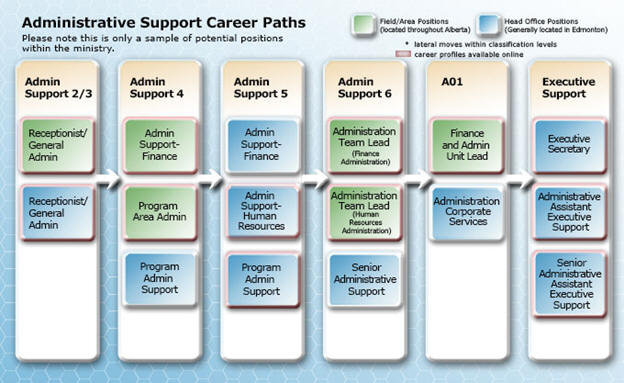
Administrative
assistants are a key part of most office environments. They work quietly in the
background, ensuring that the business runs smoothly and efficiently. This skill
will give new administrative assistants tools that will make them that person
that the office can't live without. Experienced administrative assistants will
learn new tools that will make them more efficient and valuable than ever.
The candidate should be able to:
ü Getting Organized
ü Manage their time more effectively
ü Prioritize their time so they can get it all
done.
ü Complete Special Tasks
ü Verbal Communication Skills
ü Non-Verbal Communication Skills
ü Empowering Yourself
ü Deal better with their managers
ü Taking Care of Yourself is a priority


Anger
management is a term used to describe the skills you need to recognize
that you, or someone else, is becoming angry and take appropriate action to
deal with the situation in a positive way. Anger management does not
mean internalizing or suppressing anger.
The candidate
should be able to:
ü Gain a better understanding of anger and the
natural anger cycle
ü Gain insight into the "fight or flight"
response that triggers anger
ü Understand the realities of anger
ü Learn about helpful and unhelpful ways of dealing
with anger
ü Master strategies for gaining control of anger in
all situations
ü Discover some productive ways of "blowing
off steam"
ü Learn how to improve home and work life by
managing anger better
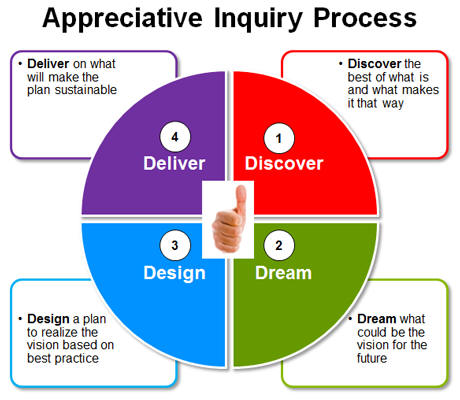
Appreciative
Inquiry skill is an approach to organizational change which focuses on
strengths rather than on weaknesses - quite different to many approaches to
evaluation which focus on deficits and problems.
The candidate
should be able to:
ü Critically reflect on Appreciative Inquiry as it
relates to you and learning agenda
ü Understand more about your strengths and how
these support your change management aims
ü Share your reflective activities with your
support partners using a webfolio
Assertiveness
& Self-Confidence


Assertiveness
is a skill regularly referred to in social and communication skills training. Being
assertive means being able to stand up for your own or other people’s rights in
a calm and positive way, without being either aggressive, or passively
accepting ‘wrong’.
The candidate
should be able to:
ü Present yourself in a consistently assertive
manner to make a powerful and positive impact
ü Say “no” positively and effectively
ü Recognize different types of behavior and its
potential impact
ü Become more able to resist the pressure and
dominance of excessively dominant people
ü Stand up to bullies and bully tactics
ü Exert a little more control in situations that
are important to you
ü Recognize potential conflict and adopt skills to
manage it
ü Talk confidently to people and be heard
Attention
Management
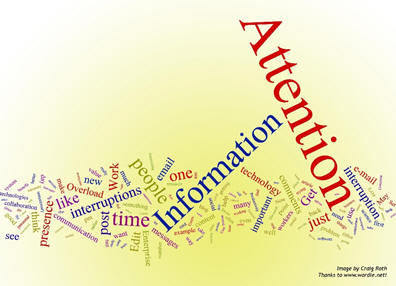
A
distracted employee is a less effective employee. Employees who do not pay
attention can waste valuable time and make careless mistakes. Your participants
will be more efficient at their job, make fewer mistakes, and be more
productive overall. Attention Management is a useful skill that
allows managers to connect with their employees on an emotional level and
motivate them to focus on their work.
The candidate
should be able to:
ü Define and understand attention management
ü Identify different types of attention
ü Create strategies for goals and SMART goals
ü Be familiar with methods that focus attention
ü Put an end to procrastination
ü Learn how to priorities time
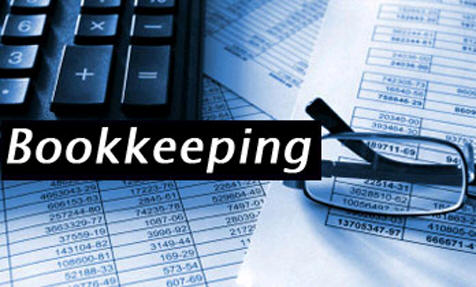
Bookkeeping
skill is essentially keeping track of all the money coming in and out and
within your business or life. You keep chronologically ordered records in
account books of all transactions, including debit and credit transactions, and
record the value of assets, liabilities, incomes, expenses and sales. If you
are VAT-registered, you also need to keep records of VAT.
The candidate
should be able to:
ü Understand and apply the essential numerical
skills required for bookkeeping and accounting
ü Understand and explain the relationship between
the accounting equation and double-entry bookkeeping
ü Record transactions in the appropriate ledger
accounts using the double-entry bookkeeping system
ü Balance off ledger accounts at the end of an
accounting period
ü Prepare a trial balance, balance sheet and a
profit and loss account.
Body Language
Basics

Body
Language Basics will provide you with a great set of skills to understand
that what is not said is just as important as what is said. It will also give
you the ability to see and understand how your own Body Language is being seen.
You will be able to adjust and improve the way you communicate through
non-verbal communications.
The candidate
should be able to:
ü Define body language
ü Understand the benefits & purpose of
interpreting body language
ü Learn about translating gestures into words
ü Understand the differences between open &
closed body language
ü Understand common body language mistakes &
how to avoid them
ü Gain insight into the differences in body
language between genders
ü Understand the signals you're sending to others
ü Learn the role facial expressions play in body
language
ü Learn how the proper body language in business
can strengthen negotiating strategies
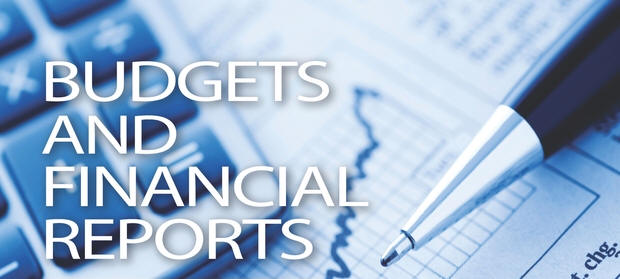
Money
matters can be intimidating for even the smartest people. However, having a
solid understanding of basic financial terms and methods is crucial to your
career. When terms like ROI, EBIT, GAAP, and extrapolation join the
conversation, you’ll want to know what people are talking about, and you’ll
want to be able to participate in the discussion.
The candidate
should be able to:
ü Understand financial terminology and concepts
clearly
ü Gain skills to analyze financial statements
ü Understand the differences between budgets
& budgeting
ü Be able to implement techniques for effective
budgeting
ü Be able to apply advanced forecasting techniques
ü Discover how to make smart purchasing decisions
ü Interpret some of the legal aspects of finances
Business Acumen
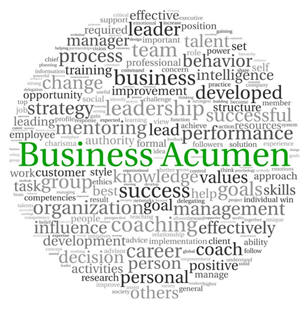
Through
our Business Acumen workshop your participants will improve their judgment and
decisiveness skills. Business Acumen is all about seeing the big picture and
recognizing that all decisions no matter how small can have an effect on the
bottom line. Your participants will increase their financial literacy and
improve their business sense.
The candidate
should be able to:
ü Improving the speed of informed decision-making.
ü Grooming high-potential employees for career
opportunities and retention.
ü Developing sustainable financial acumen as a
component of succession planning.
ü Driving a culture of owner/entrepreneur thinking
at all levels of the business.
ü Managing change due to a merger or acquisition,
growth, or shifts in executive strategy.
ü Aligning department initiatives (HR, finance,
engineering, sales, etc.) with business imperatives.
Business Ethics
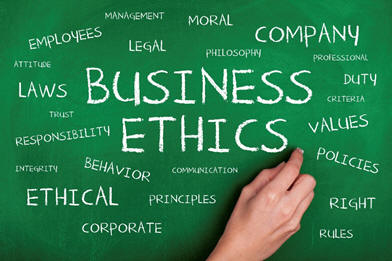
A company’s
ethics will determine its reputation. Good business ethics are essential for
the long-term success of an organization. Implementing an ethical program will
foster a successful company culture and increase profitability. Developing
a Business Ethics program takes time and effort, but doing so will do
more than improve business, it will change lives.
The candidate
should be able to:
ü Examine the role and purpose of ethics in
business
ü Present methods of moral reasoning, case
analysis, and of resolving ethical dilemmas
ü To present the ethical values considered
especially relevant to business activity—respect for human dignity, honesty,
fairness, and the development of trust.
ü To present the concept of Corporate Social
Responsibility, and explore its relevance to ethical business activity
ü To investigate the ethical obligations and
ethical ideals present in the relationship between employers and employees
ü To investigate whether ethics sets any boundaries
on competition, marketing, sales, and advertising
ü To consider any moral obligations of businesses
to the environment and to people in other countries
Business
Etiquette
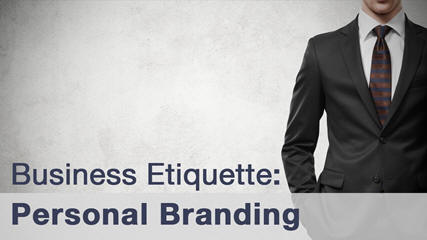
This
course examines the basics, most importantly to be considerate of others,
dress/appearance, the workplace versus social situations, business meetings,
proper introductions and "the handshake", conversation skills/small
talk, cultural differences affecting international business opportunities,
dealing with interruptions, and proper business email and telephone
etiquette.
The candidate
should be able to:
ü Create a professional image, follow cubicle and
office etiquette, and maintain positive office relationships.
ü Use the Internet appropriately when at work and
handle ethical dilemmas and personal issues in the workplace.
ü Introduce people properly, be a good
conversationalist, and follow proper etiquette in meetings.
ü Display courtesy on the telephone, in voice
mails, and in written communications.- Follow proper etiquette at business
functions and dinners, and identify formal table settings for business dining.
ü Be a courteous traveler and prepare for
international business trips.
Business
Succession Planning
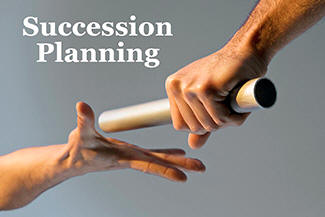
Business
succession planning is all about being prepared. The loss of valuable
leadership can cripple even the strongest of companies. Succession planning is
an essential component to the survival and growth of any business. Whether it
is grooming employees to become leaders, or preparing for an employee’s
retirement your participants will identify common obstacles and how to overcome
them.
The candidate
should be able to:
ü Express the importance of succession planning
ü Understand the process of succession planning
ü Recognize the importance of mentoring as a
component of your plan
ü Set goals using a SWOT analysis Draft a plan,
assign responsibilities and establish monitoring systems
ü Understand the importance of change management
ü Anticipate
obstacles
ü Know how to re-evaluate goals and focus on
progress
ü Recognize when success has been achieved
Business Writing
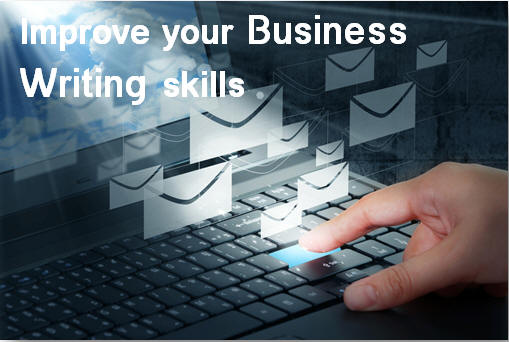
Writing
is a key method of communication for most people, and it"s one that many
people struggle with. Writing and communication skills have degraded with more
and more people communicating through email and text messaging. Developing
writing skills is still important is the business world as creating proper
documents (such as proposals, reports, and agendas), giving you that extra edge
in the workplace.
The candidate
should be able to:
ü Write business documents to a professional
standard and conforming to acceptable formats
ü Present information in an organized, structured
way so as to achieve a specific objective
ü Use a business-like style and vocabulary, while
displaying sensitivity to different levels of reader expertise
ü Express ideas with confidence and clarity,
supporting persuasive and logical arguments
Phone Skills


Phone
skills are a highly valuable tool to have in an employee’s skill-set. This skill
will help you to improve your phone skills which will make them more confident,
improve sales, and help gain new customers while retaining your current
cliental. A more confident employee is also one that is happier, and happier
employees will produce happier customers.
The candidate
should be able to:
ü Present a
telephone style that suits your personality
ü Create a
professional impression on the phone
ü Being
clear and concise
ü Getting a
message across
ü Developing confidence on the phone
ü Take the
emotion out of a call
ü Demonstrate a desire to own the call
ü Take
responsibility for each call
ü Take
control of a call
ü Deal with
difficult calls
Change
Management
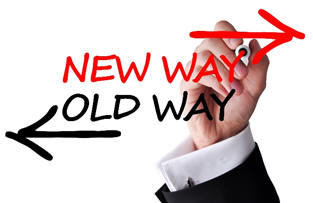

Change is
a constant in many of our lives. All around us, technologies, processes,
people, ideas, and methods often change, affecting the way we perform daily
tasks and live our lives. Having a smooth transition when change occurs is important
in any situation and you will gain some valuable skills through this skill.
The candidate
should be able to:
ü An appreciation of the impact of organizational
change on people
ü Identified ways they can positively lead and
motivate people through cultural or organizational change
ü Developed skills for effectively communicating
change
ü
Identified ways they can help team members cope
with change
Civility in the
Workplace
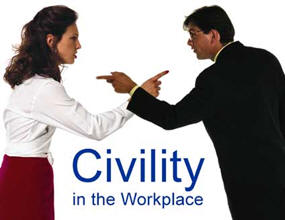
To
address the growing problem of incivility in the work setting, this skill
introduces the concept of civility, its importance to a company, as well as its
typical causes and effects. Skills needed to effectively practice civil
behavior, as well as different ways organizations can systematize civility in
the workplace will also be discussed. The benefits to Civility in the
Workplace are countless and will pay off immensely in every aspect of your
job.
The candidate
should be able to:
ü Define civility, understand its causes, and
enumerate at least three of its behavioral indicators.
ü Understand the costs of incivility, as well as
the rewards of civility, within the workplace.
ü Present practical ways of practicing workplace
etiquette.
ü Present the basic styles of conflict resolution.
ü Present skills in diagnosing the causes of
uncivil behavior.
ü Understand the role of forgiveness and conflict
resolution.
ü Understand the different elements of effective
communication.
ü Present facilitative communication skills such as
listening and appreciative inquiry.
ü Present specific interventions that can be
utilized when there’s conflict within the workplace.
ü Present a recommended procedure for systematizing
civil behavior within the workplace.
Coaching and
Mentoring
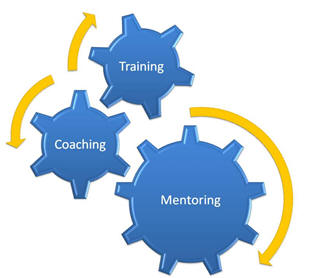
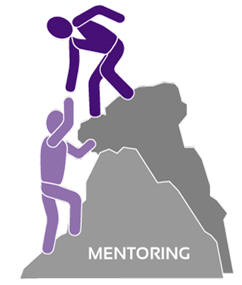
The Coaching
and Mentoring skills focuses on how to better coach your employees to higher
performance. Coaching is a process of relationship building and setting goals.
How well you coach is related directly to how well you are able to foster a
great working relationship with your employees through understanding them and
strategic goal setting.
The candidate
should be able to:
ü Provide highly effective coaching skills
ü Things you can put into practice immediately
ü Listening and responding skills
ü Motivating and guiding
ü Giving effective feedback
ü Dealing with confidence issues
ü Assisting with professional and personal
development
ü The difference between doing, telling and
coaching
ü Learning the value of patience-
Communication
Strategies
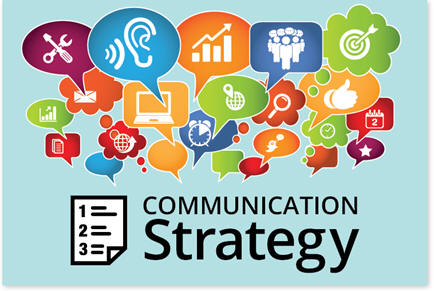
The Communication
Strategies skill will help participants understand the different methods
of communication and how to make the most of each of them. These strategies
will provide a great benefit for any organization and its employees. They will
trickle down throughout the organization and positively impact everyone
involved.
The candidate
should be able to:
ü Understand the role of communication in personal
& professional success.
ü Develop awareness of appropriate communication
strategies.
ü Prepare and present messages with a specific
intent.
ü Analyze a variety of communication acts.
ü Ethically use, document and integrate sources.
Conflict
Resolution
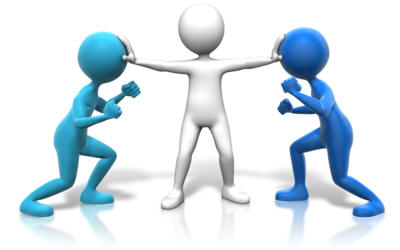
Wherever
two or more people come together, there is bound to be conflict. This skill
will give participants a seven-step conflict resolution process that they can
use and modify to resolve conflict disputes of any size. Your participants will
also be provided a set of skills in solution building and finding common
ground.
The candidate should
be able to:
ü Defined confrontation and their role in managing
conflict in the workplace to ensure they maximize individual and team
performance
ü Identified their preferred style/s in influencing
others and managing conflict and the additional strategies that they need to
use to successfully resolve the conflict situation
ü Demonstrated their skills in resolving conflict
and confrontation
ü Have identified a plan to apply and enhance their
communication skills in the workplace to address existing conflicts
Critical
Thinking
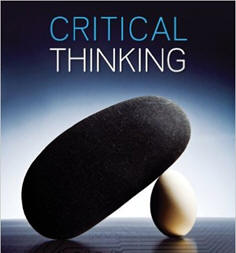

Critical
Thinking skill provides you with the skills to analyze and evaluate
information. With these skills you are able to obtain the greatest amount of
knowledge from a piece of data. It provides the best chance of making the
correct decision, and minimizes damages if a mistake does occur.
The candidate
should be able to:
ü Define argumentation, understand its structure
and components, and be aware of how it is used in public controversy
ü Understand the distinctions between deductive and
inductive reasoning
ü Understand the distinction among various types of
claims.
ü Understand the roles that case building and
refutation play in public controversy.
ü Understand and be able to critically evaluate
various elements of critical thinking, including evidence, reasoning, and
fallacies.
ü Understand the role that language plays in
critical thinking.
ü Effectively present both written and oral
arguments.
ü Become a critical “decision maker.”
Customer Service
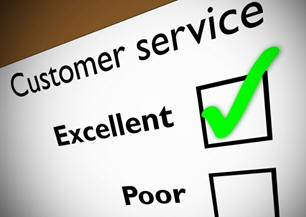

Each and
every one of us serves customers, whether we realize it or not. Maybe you’re on
the front lines of a company, serving the people who buy your products. Perhaps
you’re an accountant, serving the employees by producing their pay checks and
keeping the company running. Or maybe you’re a company owner, serving your
staff and your customers.
The candidate
should be able to:
ü Adopted a consistent, professional style when
speaking with customers
ü Developed skills in engaging with customers and
handling their enquiries effectively
ü Listened effectively, asked questions and
summarized to respond fully to a customer request
ü Identified ways they can add value to customer
relationships and exceed expectations
ü Practiced how to turn customer service
disappointment into a positive experience
Delivering
Constructive Criticism

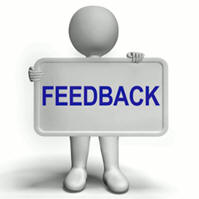
Delivering Constructive Criticism is one of the most challenging
things for anyone. Through this Skill, you will gain valuable knowledge and
skills that will assist you with this challenging task. When an employee
commits an action that requires feedback or criticism it needs to be handled in
a very specific way.
The candidate
should be able to:
ü Determine the right place to give feedback
ü Consider informal feedback
ü Gather facts on the issue
ü Create an action plan
ü Practice tone
ü Control and create an impact
ü Criticize in private, praise in public
ü Create a safe environment for providing criticism
ü Monitor body language
ü Develop understanding and active listening
ü Be collaborative
ü Set goals
ü Check emotions and outbursts
ü Diffuse negative emotions including anger
ü Understand what not to do
ü Measure results
Developing a
Lunch and Learn


Hosting a Lunch and Learn session is a low cost training option. It
is a great way to introduce a topic or give a small demonstration on a new
product or service. They are usually voluntary, thus attendance can sometimes
be an issue, but with this workshop you will be given the knowledge to work
through this issue and others.
The candidate
should be able to:
ü Understand what a lunch and learn is and is not
ü Be able to set up and break down
ü Create new content
ü Address difficult situations and people
ü Create useful takeaways
ü Use feedback to improve future lunch and learns
Emotional
Intelligence
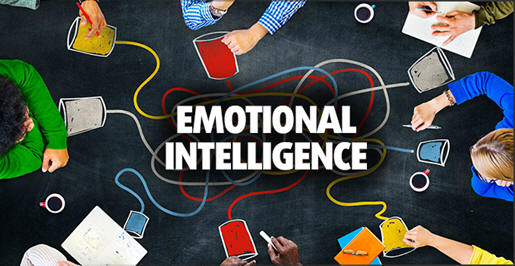
Emotional intelligence skill describes the ability to understand one’s
own feelings. It also provides great insight on how emotion influences
motivation and behavior. The concepts of Emotional Intelligence have been
around since the early 20th century, but the term was first introduced by Wayne
Payne in 1985.
The candidate
should be able to:
ü How to recognize and understand the five
competencies for building Emotional Intelligence
ü Self-motivation and job satisfaction as factors
that contribute to high performance
ü Practical tools and skills for communicating
effectively, assertively, and collaboratively
ü Influencing and partnering skills
ü Communication approaches and skills for
developing relationships and ownership for successful outcomes and follow
through
ü Skills for conflict management and dealing with
difficult situations
ü How to choose perceptions and behaviors that will
lead to positive outcomes
Employee
Motivation
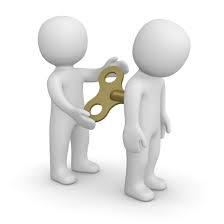
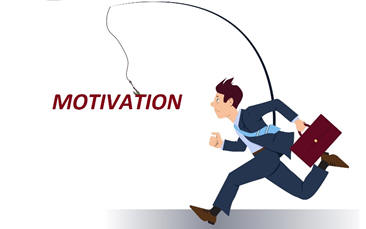
When you think of staff motivation, many things may come to mind:
more money, a bigger office, a promotion, or a better quality of life. The
truth is, no matter what we offer people, true motivation must come from
within. Regardless of how it is characterized, it is important to get the right
balance in order to ensure that you have a motivated workforce.
The candidate
should be able to:
ü Explain the importance of motivation for
employees, leaders, and the organization
ü Understand the link between motivation and
performance
ü Identify appropriate motivators for intrinsically
and extrinsically motivated individuals
ü Create a plan for motivating a team member
ü Describe the elements of a motivating work
environment
ü Identify specific activities to create a
motivational work environment
ü Articulate the dangers of rewards and punishment
Employee
Onboarding


Employee Onboarding is a vital part of any companies hiring
procedure. Hiring, training, and bringing new employees on board is a huge
investment. Onboarding will assist newly hired employees in developing and
keeping their skills. Knowledge will be retained, and their value will increase
within the company.
The candidate
should be able to:
ü Define onboarding
ü Know the benefits & purpose of onboarding
ü Prepare for a successful onboarding program
ü Identify ways to engage & follow up with
employees
ü Set operational expectations
ü Discover the importance of resiliency &
flexibility
Employee
Recruitment

Many companies simply wait for talent to come to them. Simply
advertising an open position and hoping that you find the right talent does not
guarantee that you will find the best people. Actively seeking out qualified
candidates is the best way to ensure that you find the talent that you need.
Recruitment is essential to the success of your business.
The candidate
should be able to:
ü Define recruitment.
ü Understand the selection process.
ü Recognize the GROW model and how to set goals.
ü Prepare for the interview and question
process.
ü Identify and avoid bias when making offers.
ü Discover ways to retain talent and measure growth.
Executive and
Personal Assistants
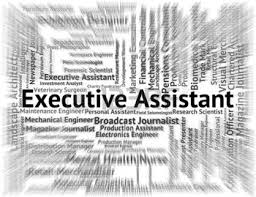

Being an Executive or Personal Assistant is a unique position that
requires a variety of skills. Whether you are updating schedules, making travel
arrangements, minute taking, or creating important documents all must be done
with a high degree of confidentiality. Confidentiality is one of the most
important characteristics for every assistant.
The candidate
should be able to:
ü Present how to develop a strategic business
partnership with your executive
ü Discover how to stay ahead of your executive’s
shifting priorities
ü Present how to quickly plan a project using a
timeline
ü Discover strategies for managing your personal
brand and career progression
ü Learn time-saving email management techniques
ü Discover the formula for influencing the
executive team
ü Present effective presentation skills
ü Present techniques for creating more time in the
diary
ü Discover how to manage multiple demands on your time
ü Present how to negotiate successfully
Facilitation
Skills
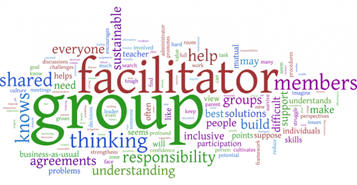
Facilitation is often referred to as the new cornerstone of
management philosophy. With its focus on fairness and creating an easy decision
making process. Creating a comfortable environment through better facilitation
will give your participants a better understanding of what a good facilitator
can do to improve any meeting or gathering.
The candidate
should be able to:
ü Know the concept of facilitation: its purpose and
underlying beliefs.
ü Know an overview of the foundational
content/process model.
ü Know the five core practices of facilitation.
ü Know the boundaries of neutrality.
ü Know a clear structure for beginning any
facilitated session.
ü Know how norming can create and maintain a positive
meeting climate.
ü Know the purpose and importance of flipchart note
taking.
ü Know techniques for intervening to redirect
member behaviors.
ü Know the hidden reasons that meetings falter.
ü Know specific set of steps for taking the pulse
and restoring group order.
ü Know various ways that groups can make decisions
and clarifies whether they unite or divide group members.
ü Know situations in which each approach is
applicable.
ü Present what facilitators do to effectively end
facilitated discussions.
ü Know a variety of ways to bring closure.
ü Know strategies to avoid poor follow-through.
Generation Gaps

While having various cultures in one workplace can present communication problems and conflicts, the benefits of such a variety in the workplace outweigh it. The workplace can present challenges to management in terms of handling the different generations present. As older workers delay retiring and younger workers are entering the workforce, the work environment has become a patchwork of varying perspectives and experiences, all valuable to say the least.
The candidate
should be able to:
ü Identify where the generation gap issue surfaces,
and the impact it has on the modern workforce.
ü Describe and apply language that is specific to
each generation currently in the workplace.
ü Explore organization strategies that overcome gap
issues.
ü Evaluate the need and effectiveness of
recruiting, retention, and succession plans in context of the generation gap.
Goal Setting and
Getting Things Done

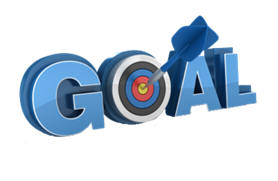
Goal Setting is one of the most basic and essential skills someone
can develop. We touch on goal characteristics, time management, and what to do
when setbacks occur. This workshop will provide the knowledge and skills your
participants need to complete more tasks, and get things
done.
The candidate
should be able to:
ü Overcome procrastination
ü Apply the 15 minute rule
ü Remove distractions
ü Reward yourself
ü Start small and build from there
ü Set realistic deadlines
ü Use the four P’s of Positive, Personal, Possible
and Prioritized
ü Motivate yourself by remembering success
ü Use gamification
ü Track your progress
ü Manage time
ü Break up large tasks
ü Utilize technology
ü Build on your successes
ü Chunk, block and tackle
ü Plan effectively
ü Use Specific, Measurable, Attainable, Realistic
and Timely (SMART) goals
Hiring
Strategies

Successful companies are made up of great employees, so why not
hire great employees? Hiring and training employees is an expensive venture.
Hiring the right person is more about skills and abilities; it is about finding
the right combination of skills, attitude, and fit for your organization’s
culture.
The candidate
should be able to:
ü Know the position
ü Analyze a job
ü Analyze a task
ü Develop a suitable hiring strategy
ü Identify top performers
ü Be prepared
ü Mark salary range
ü Advertise where it matters
ü Develop corporate citizenship
ü Consider competition
ü Consider cover letters appropriately
ü Grade resumes
ü Conduct an Internet search
ü Use a panel
ü Interview more than once
ü Understand the selection process
Human Resource
Management
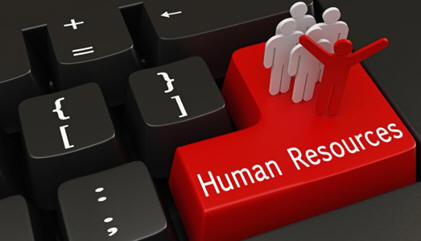
Recently
tasks that were originally thought to fall under the responsibility of the
human resources department have become a part of many managers" job
descriptions. The sharing and diffusion of these tasks throughout the
organization has had an impact particularly on those that are not equipped with
the skills or knowledge to deal with these issues.
The candidate
should be able to:
ü HR management objectives and ethical issues
ü Organizational theories
ü Job design and analysis
ü Employee training assessment
ü Performance issues
ü Employee rights and labor relations
ü Global staffing concerns and methods
Interpersonal
Skills

We’ve all
met that dynamic, charismatic person that just has a way with others, and has a
way of being remembered. Your participants will identify ways of creating a
powerful introduction, remembering names, and managing situations when you’ve
forgotten someone’s name.
The candidate
should be able to:
ü Determine their communication style
ü Develop strategies for interacting with
communication styles unlike their own
ü Identify and use conflict resolution styles
appropriate for different situations
ü Identify barriers to communication and strategies
to overcome them
ü Listen effectively to ensure they have received
messages as intended
ü Use nonverbal communication to express interest
and demonstrate that they are actively engaged in conversations
ü Develop strategies for building and maintaining
relationships
Job Search
Skills

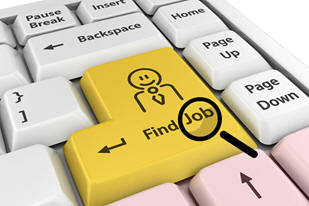
Searching
for a job can be intimidating. How do you know what job you’re best suited for?
How do you build a winning resume and cover letter? Where can you find job
leads? How do you network without feeling nervous? What happens when you land
an interview? And most importantly, where do you find help when you need it?
The candidate
should be able to:
ü To develop awareness of different job search
techniques, including how to employ practical networking techniques
ü To begin to recognize the skills developed during
research and analyses how to present these effectively in written applications
ü To understand and recognize the characteristics
of effective CVs, cover letters and application forms
ü To critique the strengths and weaknesses of their
own and colleagues’ current CVs
ü To evaluate example cover letters in order to
build their knowledge of different types and styles they may utilize
ü To prepare an example answer for an application
form
ü To understand interview processes and practice
being interviewed in a supportive environment
Manager
Management
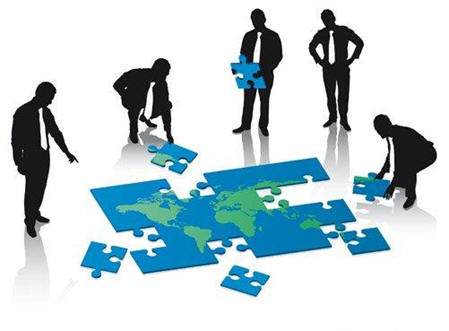
With this
skill you will be able to provide the skills, guidance, and empowerment to your
team of managers. They will then be better suited in leading and motivating
their team and thus produce fantastic results. To be a successful manager means
having a wide range of skills. Through this skill you will be able to disperse
your knowledge and experience throughout your leadership team.
The candidate
should be able to:
ü Welcoming and orientating new managers
ü Successful coaching and mentoring
ü Performance measurement
ü Dealing with complications
ü Communication between employees and management
Managing
Workplace Anxiety


The
workplace is one of the leading locations where people experience stress and
anxiety. Every employee will encounter it sometime during their career. Everyone
should be aware of the signs of anxiety and the tools needed to cope and deal
with it.
The candidate
should be able to:
ü Recognizing the difference between anxiety and
common nervousness.
ü Identifying different types of workplace
anxieties.
ü Recognizing common trigger and accelerants.
ü Recognizing symptoms and warning signs.
Meeting
Management

This skill
is designed to give your participants the basic tools you need to initiate and
manage their meetings. They should know to planning and leading techniques that
will give them the confidence to run a meeting that will engage the attendees
and leave a positive and lasting impression. Through this skill your
participants should know the needed skills in planning and implementing a
successful meeting.
The candidate
should be able to:
ü Know types of Meeting
ü Know the role of each person in a meeting
ü How to get the most out of your meetings in the
given time frames.
ü How to plan and follow a set agenda, ensuring
your meetings meet set objectives.
ü The most effective way of engaging all
participants.
ü Practical techniques to energize your meetings.
Negotiation
Skills

Although
people often think of boardrooms, suits, and million dollar deals when they
hear the word negotiation, the truth is that we negotiate all the time.
Through this workshop participants will be able to understand the basic types
of negotiations, the phases of negotiations, and the skills needed for
successful negotiating.
The candidate
should be able to:
ü Understanding the interests, priorities, and
goals of all parties
ü Maximizing opportunity through pre-negotiation
preparation
ü Knowing how personal biases and cultural
differences impact negotiations
ü Dealing with irrational people and challenging
relationships
ü Improving communication by listening and asking
questions
ü Making offers at the right time and in the right
way
ü Transforming competition into cooperation—and
opponents into partners
ü Managing teams of negotiators more effectively
ü Recognizing when to walk away from the table
Office Politics
for Managers

You have likely experienced some form of Office Politics. Working
with different personalities, opinions, backgrounds, and values is a challenge
in any environment. It is an inevitable fact that when people are working
together personalities can and will clash. No one is an island, so working
together as a team is incredibly important for the organization and every
employee.
The candidate
should be able to:
ü The purpose and benefits of office politics
ü Setting ground rules and boundaries for new
employees
ü Interaction between workers
ü Learning different personality types
ü Effective networking and support
ü How individuals function within a group
Organizational
Skills

Developing good Organizational Skill is an investment that will
provide benefits for years. To be successful means to be organized. These
skills will filter through all aspects of your participants professional and
personal lives. Throughout this workshop your participants will be given the tools
necessary in developing better Organizational Skills.
The candidate
should be able to:
ü Prevent information overload, and manage
information by using the INFO process.
ü Manage written, oral, and electronic information,
and use memory more effectively.
ü Manage outgoing information, and identify when
it’s best to use written, oral, or electronic information.
ü Identify characteristics and myths related to
time, and manage time-related problems.
ü Get organized, plan and prioritize, and identify
the causes of and remedies for procrastination.
ü Handle visitors, handle office interruptions, and
delegate effectively.
ü Manage team time, communicate and plan within a
team, and use team time effectively.
Personal
Productivity
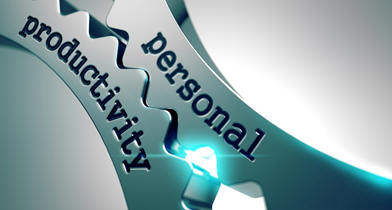
Most people find that they wish they had more time in a day. This skill
will show participants how to organize their lives and find those hidden
moments. Participants will learn how to establish routines, set goals, create
an efficient environment, and use time-honored planning and organizational
tools to maximize their personal productivity.
The candidate
should be able to:
ü Set & evaluate SMART goals (specific,
measurable, achievable, relevant & timed)
ü Learn to use routines to maximize productivity
ü Master numerous scheduling tools for efficient
use of time
ü Learn to stay on top of a to-do list
ü Learn how to start new tasks & projects on
the right foot
ü Master basic project management techniques
ü Organize physical & virtual workspaces for
maximum efficiency
ü Take back time from e-mail & handheld devices
ü Learn to tackle procrastination
Presentation
Skills
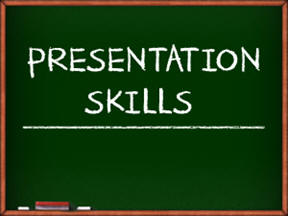

Many studies have found that public speaking is the number one fear
amongst most people, outranking flying, snakes, insects, and even death.
Ironically, it is also one of the skills that can make or break a person’s
career. Your participants will be provided a strong set of skills that will
complement their current presentation skill set.
The candidate
should be able to:
ü Plan their presentation by gathering relevant
information, determining audience needs, and defining presentation purpose;
ü Organize the presentation using the concepts of
ordering and determining the central, main and supporting ideas;
ü Develop the introduction and conclusion of the
presentation;
ü Identify the benefits and uses of visual aids;
ü Apply the various media choices for displaying
data and enhancing the presentation;
ü Use effective verbal and non-verbal techniques
when making a presentation;
ü Reduce their stress when making a presentation;
ü Effectively field questions and elicit feedback
from the audience;
ü Gain feedback from peers and the trainer that
will identify strengths and areas for improvement.
Proposal Writing

A good proposal doesn’t just outline what product or service you
would like to create or deliver. It does so in such a way that the reader feels
it is the only logical choice. Your participants will explore the proposal
writing process including the most common types of proposals.
The candidate
should be able to:
ü Define the strategy & best approach for each
proposal
ü Determine the correct proposal style
ü Master the best method for effective proposal
writing
ü Perform a need analysis & write a goal
statement
ü Acquire a variety of techniques for improving
writing skills
ü Use appropriate resources & ghosting to build
a strong case
ü Use illustrations & case studies for maximum
impact
ü Present effective techniques for proofreading &
editing
ü Master the art of finishing touches to create a
professional, final product
Public Speaking

According to a survey by the Sunday Times of London, 41% of people
list public speaking as their biggest fear. Forget small spaces, darkness, and
spiders, standing up in front of a crowd and talking is far more terrifying for
most people. Through this skill your participants will become more confident
and relaxed in front of an audience which will translate into a successful
speaking event.
The candidate
should be able to:
ü Overcome your fear of public speaking
ü How to make a solid first impression that will
command any audience’s attention
ü How to develop a presentation that
people will remember
ü Demonstrate the best way to use visual aids
ü Teach you how to engage an audience
ü Exude confidence in front of a group
Risk Assessment
and Management
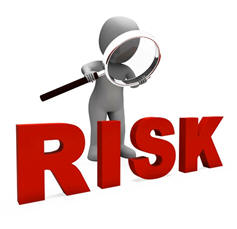
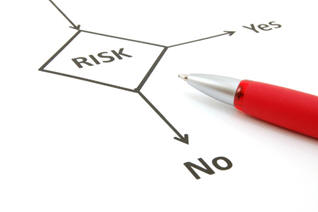
It is not possible to control or manage 100% of risk, but knowing
what do before, during, and after an event will mitigate the damage and harm.
Identifying potential hazards and risks and making it part of the day to day
business is important. Safety should be the first priority as every business
must face the reality of risks and hazards.
The candidate
should be able to:
ü Understand business’s approach to risk management;
ü Understand how risk management affects
decision-making;
ü Conduct a risk analysis by drawing up a risk
profile and using a risk matrix;
ü Identify risks/uncertainties to achieving a set
of objectives and expected results
ü Prioritize these uncertainties;
ü Decide how to act on the uncertainties within the
framework of project planning.
Safety in the
Workplace
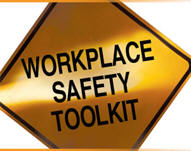
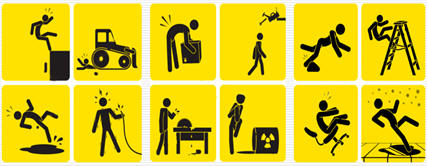
Workplace safety is the responsibility of everyone in an
organization. Companies have legal obligations to meet certain safety
requirements, but many go further than the minimum obligations. Safety
standards and procedures must be put in place, and everyone needs to follow the
standards in order for them to be effective.
The candidate
should be able to:
ü Understanding the importance of health, safety
and welfare standards in the workplace
ü Knowing how hazards and risks are controlled in
the workplace
ü Being aware of the main causes and effects of
poor health and safety at work
ü Understanding how health and safety information
is communicated in the workplace
Stress
Management


Positive and negative stress is a constant influence on all of our
lives. The trick is to maximize the positive stress and to minimize the
negative stress. Your participants will be shown how stress can be positive and
negative, and we’ll look at the Triple A approach that will form the basis of
this workshop.
The candidate
should be able to understand:
ü Pressure and Performance Management
ü Common
Causes of Stress
ü The
Symptoms of Excess Stress
ü Personal
Stress Audit
ü Identifying
Pressure at Work
ü Identifying
Pressure at Home
ü Improving
Interpersonal Skills
ü Characteristics
of Well-Managed Stress
ü Setting
Clear Boundaries
ü The
Psychology of Changing Behavior
ü Making
Appropriate Behavior Changes
ü Change without Causing More Pressure
ü Identifying and Managing Stress in Others
ü Distinction between Pressure and Lack of Ability
ü The Link between Good Communication and Decreased
Stress
Supervising
Others
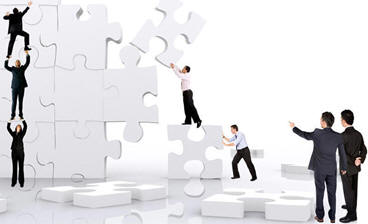
Supervising others can be a tough job. Between managing your own
time and projects, helping your team members solve problems and complete tasks,
and helping other supervisors, your day can fill up before you know it.
The candidate
should be able to:
ü Set clear expectations for team members
ü Set S.M.A.R.T. goals for team members that
motivate and inspire dedication
ü Effectively assign work that has been set
according to each employee and situation
ü Master techniques to delegate effectively and
confidently
ü Develop approaches for conducting formal feedback
sessions
ü Provide informal, constructive feedback
ü Develop priorities and time management strategies
as a team leader
ü Establish conflict resolution strategies
ü Interact with new or existing teams
ü Create a path for personal development
Talent
Management
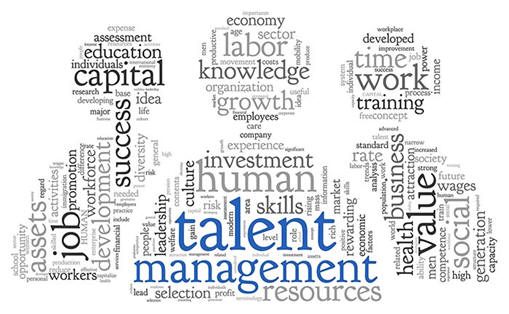
Every company wants to have the best and brightest employees, and
with Talent Management that can be achieved. With a company’s workforce
generally being its highest cost, does it not make sense to invest in it? With
Talent Management you are developing a more skilled workforce, and attracting
better and more skilled new hires.
The candidate
should be able to:
ü To strategically manage the talent and
performance in your organization.
ü To implement proven strategies, tools, and
processes to help manage talent and performance.
ü To discover how to focus people more effectively
on their performance by examining each phase of the performance management
process.
ü To develop employees' performance by setting
meaningful goals, providing effective feedback, diagnosing potential problems
and building a plan of action to correct the problems.
Telework and
Telecommuting
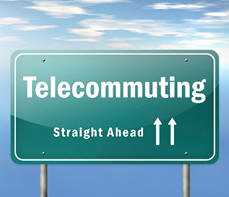

Working in a home office requires a
unique set of skills. Teleworkers or virtual employees have additional
challenges created by not being in a centralized office. Communication issues
alone make it a challenging job, and recognizing these challenges will help
your participants become great teleworkers.
The candidate
should be able to:
ü Manage time
ü Organize and plan
ü Develop communication skills
ü Solve problems on their own
ü Stay motivated
ü Use freedom wisely
ü Learn accountability
ü Recognize and remove bad habits
ü Learn from mistakes and avoid repetition
ü Build flexibility in schedule
ü Build trust and rapport
ü Use feedback
ü Beat isolation
ü Set realistic expectations from family
Trade Show Staff
Training
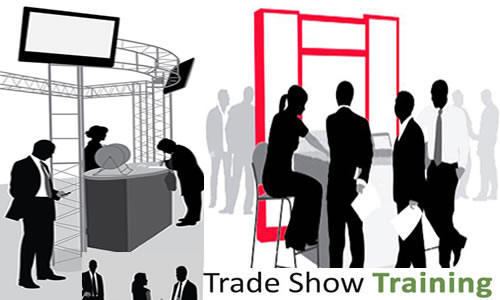
Deciding
to attend a trade show is a large investment for any company. Preparation is
essential: It’s better not to go to a trade show than to go unprepared. Every
person in your booth is an ambassador to your company, make sure they are
prepared. Trade show attendees usually plan a list of whom they're going to
visit before ever entering the convention center doors, make sure you are on
that list.
The candidate
should be able to:
ü Prepare for a trade show
ü Maintain a professional atmosphere
ü Engage customers appropriately
ü Prepare staff for a trade show
ü
Follow-up with your leads
Train-The-Trainer
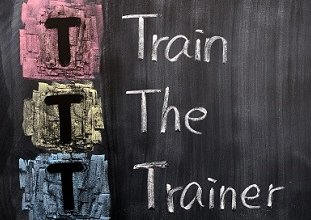
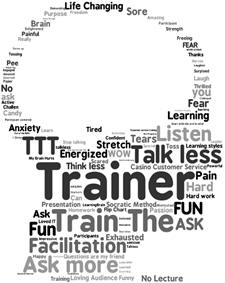
Whether
you are preparing to be a professional trainer, or you are someone who does a
bit of training as a part of their job, you always want to be prepared. Your
participants will understand that training is a process where skills,
knowledge, and attitudes are applied in a unique way.
The candidate
should be able to:
ü Describe the training cycle.
ü Identify and determine the need for
training—what, who, and how.
ü Write effective learning objectives.
ü Design participant-oriented learning materials
and exercises.
ü Apply adult learning concepts, develop supportive
climates, and customize off-the-shelf materials.
ü Use training activities and alternatives to
lecture, strategize for different learning needs, and create effective
questioning techniques.
ü Prepare properly for a training session, and
prepare participants to foster learning.
ü Manage and encourage participants of all
backgrounds and learning styles
ü Address challenging participants and behaviors.
ü
Present and facilitate a
training program, including use of audio visuals and handouts.
ü Evaluate program impact at different levels using
a variety of methods.
ü Identify the five levels of evaluation.
Virtual Team Building
and Management
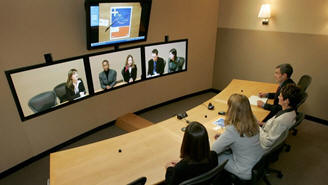

There are
an estimated one billion virtual workers in 2012, and the number is expected to
continue climbing well into the future. With a global workforce you are
provided with a cost effective and talented pool of employees to draw from.
With a virtual team you are given a Follow the Sun production
environment.
The candidate
should be able to:
ü Know the keys to establishing a virtual team
ü Understand how to hold effective meetings and
group sessions
ü Know effective ways to communicate with team
members
ü Use tools to build trust and confidence among
employees
ü Know how to handle poor performing employees
ü Know how to manage a virtual team during any
project
Work-Life
Balance
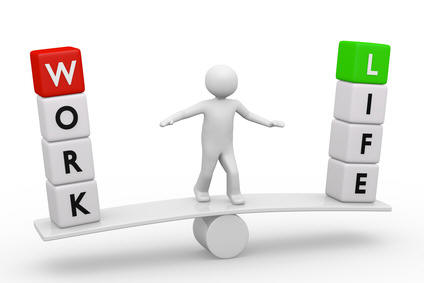
Having a
balance between work and home life can be a challenge. With this challenge come
great rewards when it is done successfully. By balancing a career with home
life it will provide benefits in each environment. You will become healthier,
mentally and physically, and you will be able to produce more career
wise.
The candidate
should be able to:
ü Understand the benefits of a work-life balance
ü Recognize the signs of an unbalanced life
ü Learn about employer resources for a balanced
lifestyle
ü Telecommunicate effectively
ü Master time management and goal setting
ü Leave work stress at work, and home stress at
home
ü Work at a home office productively
ü Manage time
ü Find the most effective work methods for you
ü Improve life at home by spending time alone
ü Draw a boundary between work and home
ü Create a balance at work and at home
ü Learn to manage stress
Workplace
Diversity


Improving
diversity knowledge is a required component of every company. With more and
more businesses having global presence workplace diversity is a forgone
conclusion. Your participants will be able to use strategies to be proactive
and remove barriers. They will be shown how to build and encourage diversity in
their workplace and community.
The candidate
should be able to:
ü Know concepts of diversity, equality & equal
opportunities
ü Explanation of why diversity is important
ü Overview of legislation (direct and indirect)
ü The Equality Act
ü Stereotyping and Prejudice
ü Bullying and Harassment
ü Understanding Bias
ü Legal Liability
ü Challenging Unacceptable Behavior
ü Evaluation and Conclusion
Workplace
Harassment

Harassment
can be based on a variety of factors such as race, sex, and disability.
Experiencing an uncomfortable situation in the workplace may be more than an
unpleasant event; it may be against the law. This alone is what makes this
topic very important for every organization.
The candidate
should be able to:
ü The importance of diversity
ü Respect and disrespect in the workplace
ü Anti-discrimination laws
ü Sexual harassment defined
ü Types of sexual harassment
ü Consensual relationships
ü Conduct to be avoided
ü Internet and e-mail harassment
ü Other forms of harassment
ü Unwelcome physical behaviors
ü Unwelcome verbal behaviors
ü Offensive displays in the workplace
ü Retaliation
ü Reporting discrimination and harassment
ü What you should do
Workplace Violence


Workplace
harassment must be identified, discouraged, and prevented in order to keep a
hostile work environment from developing. Left unchecked, harassment can
escalate into violence. Workplace violence and harassment training is essential
to the safety of all employees.
The candidate
should be able to:
ü Identify institutional environmental and policy
risk factors for workplace violence.
ü Recognize behavioral warning signs of violence in
individuals.
ü Employ communication and teamwork skills to prevent
and manage violence.
ü Identify appropriate resources to support injured
healthcare workers.
ü Take steps to implement a comprehensive workplace
violence prevention program.

